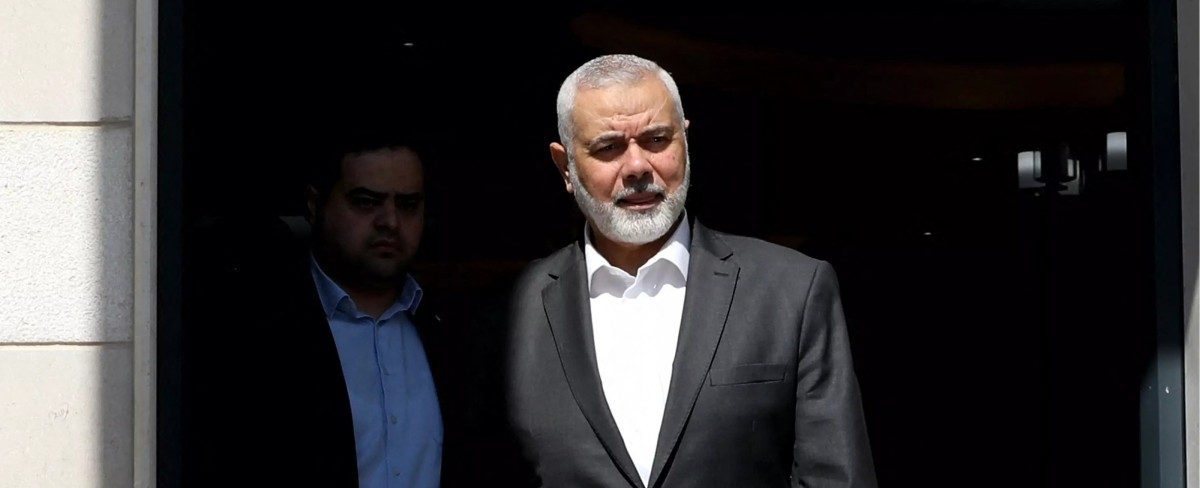Doha, Qatar – Hamas chief Ismail Haniyeh on Wednesday said the movement will be involved in deciding post-war rule in Gaza along with other Palestinian factions.
“We say that the Hamas movement is here to stay … and it will be the movement and all national (Palestinian) factions who will decide the post-war rule in Gaza,” Haniyeh said in a televised address.
He also said the fate of truce talks was uncertain because of Israel’s “insistence on occupying the Rafah crossing and on its expansion of the aggression” in the Palestinian territory since the October 7 Hamas attacks.
Haniyeh’s address marked the 76th anniversary of the “Nakba”, when around 760,000 Palestinians fled or were driven from their homes during the 1948 creation of Israel.
Haniyeh reiterated the movement’s position concerning truce talks that have again hit an impasse.
“Any agreement must ensure a permanent ceasefire, comprehensive withdrawal (of Israeli forces) from all sectors of the Gaza Strip, a real deal for exchange of captives, the return of displaced persons, reconstruction and lifting the siege” of Gaza, Haniyeh said.
His comments came after Israeli Prime Minister Benjamin Netanyahu said any discussion on who rules Gaza after the war was just “empty talk” as long as Hamas remains in the territory.
“Until it is clear that Hamas does not militarily control Gaza, no entity will be willing to take civilian management of Gaza for fear of its well-being,” Netanyahu said in a statement.
“The first condition for preparing the ground for another entity is to destroy Hamas, and to do so without making excuses,” he said.
However, Israeli Defence Minister Yoav Gallant appeared to challenge Netanyahu, saying it had to be Palestinian entities ruling Gaza after Hamas had been defeated.
“I call on Prime Minister Benjamin Netanyahu to make a decision and declare that Israel will not establish civilian control over the Gaza strip,” Gallant said on Wednesday evening, calling for a “governing alternative to Hamas” immediately.
Gallant said Israel’s military action in Gaza needed to be followed by political action.
“The day after Hamas will only be achieved with Palestinian entities taking control of Gaza, accompanied by international actors, establishing a governing alternative to Hamas’ rule,” he said.
“This, above all, is in interest of the state of Israel.”
Israel’s offensive has killed at least 35,233 people, mostly civilians, according to the Gaza health ministry. An Israeli siege has brought dire food shortages and the threat of famine.








